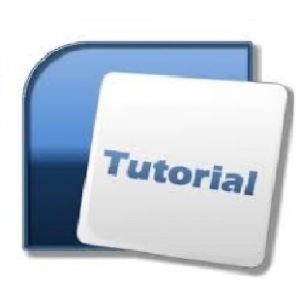
- Description
ETH 321 Week 4 Knowledge Check
Week 4 Knowledge Check
The material presented below is not meant to be a comprehensive list of all you need to know in the content area. Rather it is a starting point for building your knowledge and skills. Additional study materials are recommended in each area below to help you master the material.
Personalized Study Guide Results:
Score: 11 / 12
Concepts Mastery Questions
Functions of administrative law 100% • 1
- 2• 3
Powers of administrative agencies 100% • 4
- 5• 6
Trade secret protections 100% • 7
- 8• 9
Trademarks and copyright law 100% • 10
- 11
- 12
Concept: Functions of administrative law
Mastery : 100% Questions : • 1
- 2• 3
Materials on the concept:
- Policymaking
- Primary Functions of Administrative Agencies
- Licensing and Permitting
1.
Identify the true statement about administrative agencies.
- A.
They are not authorized to perform legislative functions.
- B.
They are charged with the task of creating regulations that are legally enforceable.
- C.
They have only judicial and not executive powers.
- D.
Their functions do not encompass the enforcement of regulations made by Congress.
2.
Which of these demonstrates the adjudication function of administrative agencies?
- A.
Granting licenses to industries and professionals
- B.
Distributing the statutory benefits provided by Congress
- C.
Studying the broad policies made by Congress
- D.
Deciding cases that involve violations of agency rules
3.
What is true about the activities of administrative agencies?
- A.
They work independently of Congress.
- B.
They review judgments of trial courts.
- C.
They grant licenses and permits.
- D.
Their scope of functioning is limited to legislation.
Concept: Powers of administrative agencies
Mastery : 100% Questions : • 4
- 5• 6
Materials on the concept:
- Agency Study and Research
- Rulemaking
- Enforcement, Licensing, and Inspection
- Scope of Administrative Agency Power
- Adjudication
4.
Identify the true statement about the rulemaking process followed by administrative agencies.
- A.
The rulemaking process is formal and requires a comprehensive hearing.
- B.
Agencies are prohibited from involving experts from outside the government in the rulemaking process.
- C.
Agencies are required to make public any material such as reports and studies that they used during rulemaking.
- D.
Agencies must publish the rule in the federal register only after holding public hearings.
5.
What is true about the powers of administrative agencies?
- A.
All actions of the administrative agencies are reviewable by the judiciary.
- B.
Administrative agencies cannot decide by themselves about when and whom to regulate.
- C.
Administrative agencies have the authority only to grant licenses and not revoke them.
- D.
Administrative agencies are authorized to conduct inspections of businesses and individuals.
6.
Which power of administrative agencies allows them to create quasi-court trial settings to hear disputes that arise in their jurisdictions?
- A.
Rulemaking
- B.
Adjudication
- C.
Inspection
- D.
Legislation
Concept: Trade secret protections
Mastery : 100% Questions : • 7
- 8• 9
Materials on the concept:
- Trade Secret Protections
- Misappropriation
- Exclusive Rights for Unlimited Duration
- Criminal Sanctions
7.
When does misappropriation of a trade secret occur?
- A.
When someone acquires a trade secret illegally
- B.
When someone conducts research to discover a trade secret
- C.
When someone uses reverse engineering to figure out a trade secret
- D.
When the owner unintentionally shares the secret with others
8.
Identify the true statement about trade secret protection.
- A.
It expires after a very limited period of time.
- B.
It is lost if the owner does not take adequate measures to prevent misappropriation.
- C.
It considers reverse engineering as misappropriation and enables the owner to recover damages.
- D.
It can be availed for all kinds of trade practices, whether or not they have economic value.
9.
Identify the true statement about the Uniform Trade Secrets Act.
- A.
It provides recourse to owners of trade secrets even in cases where the secret was lost because of the owner’s negligence.
- B.
It does not contain any criminal sanctions.
- C.
It prohibits reverse engineering of trade secrets.
- D.
It does not provide trade secret protection for processes and methods.
Concept: Trademarks and copyright law
Mastery : 100% Questions : • 10
- 11
- 12
Materials on the concept:
- Classifications of Trademarks
- Arbitrary or Fanciful
- Acquiring Rights for Trademark Protection
- Trademarks, Service Marks, and Trade Dress
- Copyright Law: Protections of Original Expressions
Show More
10.
What is true about arbitrary trademarks?
- A.
They are generally provided with a very low level of protection.
- B.
They do not have a strong logical connection with the products or services that they represent.
- C.
They directly describe the characteristics of products they represent.
- D.
They tend to be less distinctive than the other types of trademarks.
11.
What statement is true in the context of acquiring trademark rights?
- A.
Trademarks cannot be used in more than one geographic location.
- B.
Descriptive trademarks cannot get protection.
- C.
Trademark rights can only be acquired by registering the mark before it is used.
- D.
Trademark rights can be acquired by being the first to put the mark to use in commerce.
12.
Which of these can be protected under the Copyright Act?
- A.
Innovative ideas
- B.
Processes
- C.
Scientific principles
- D.
Recorded audio